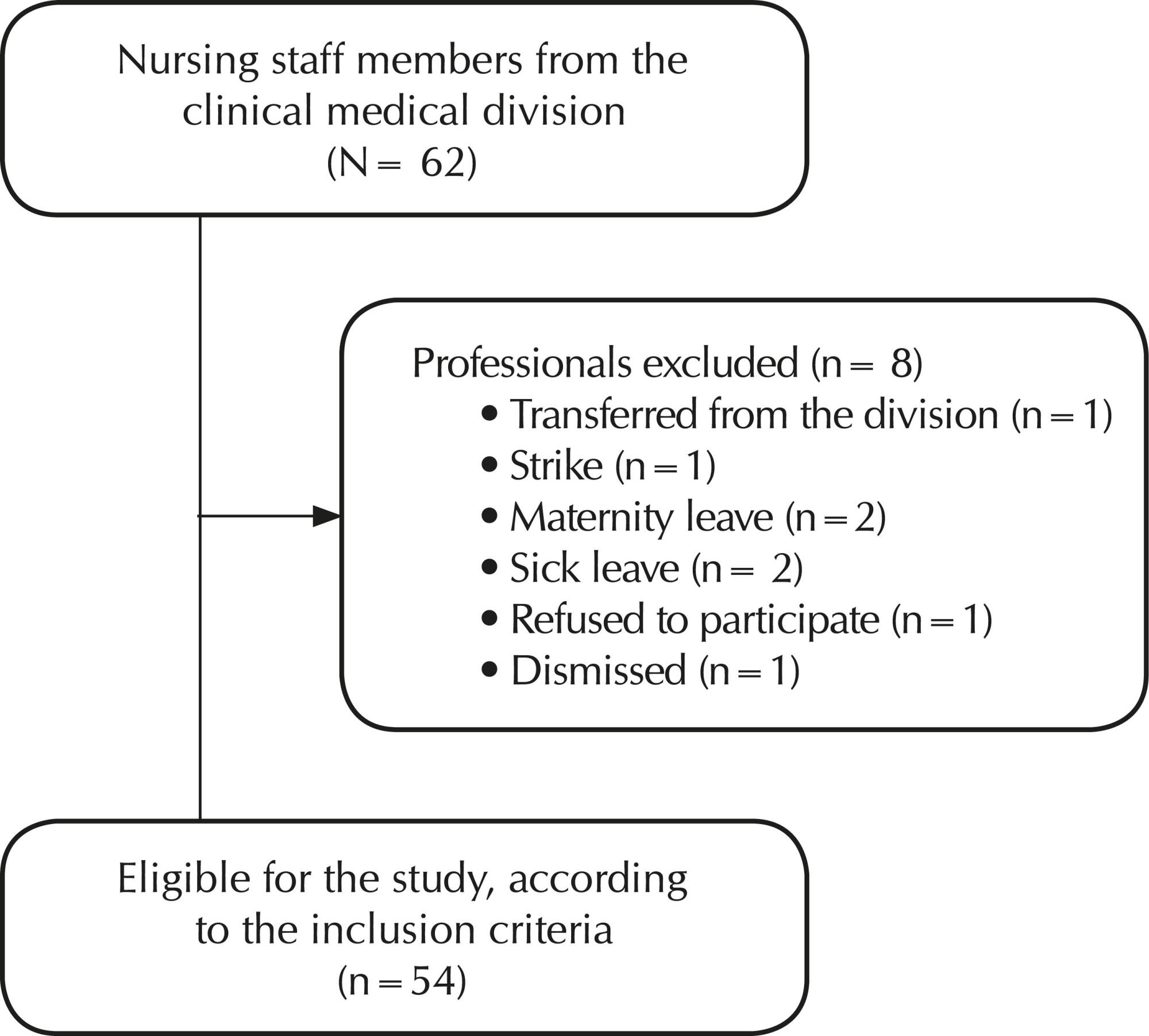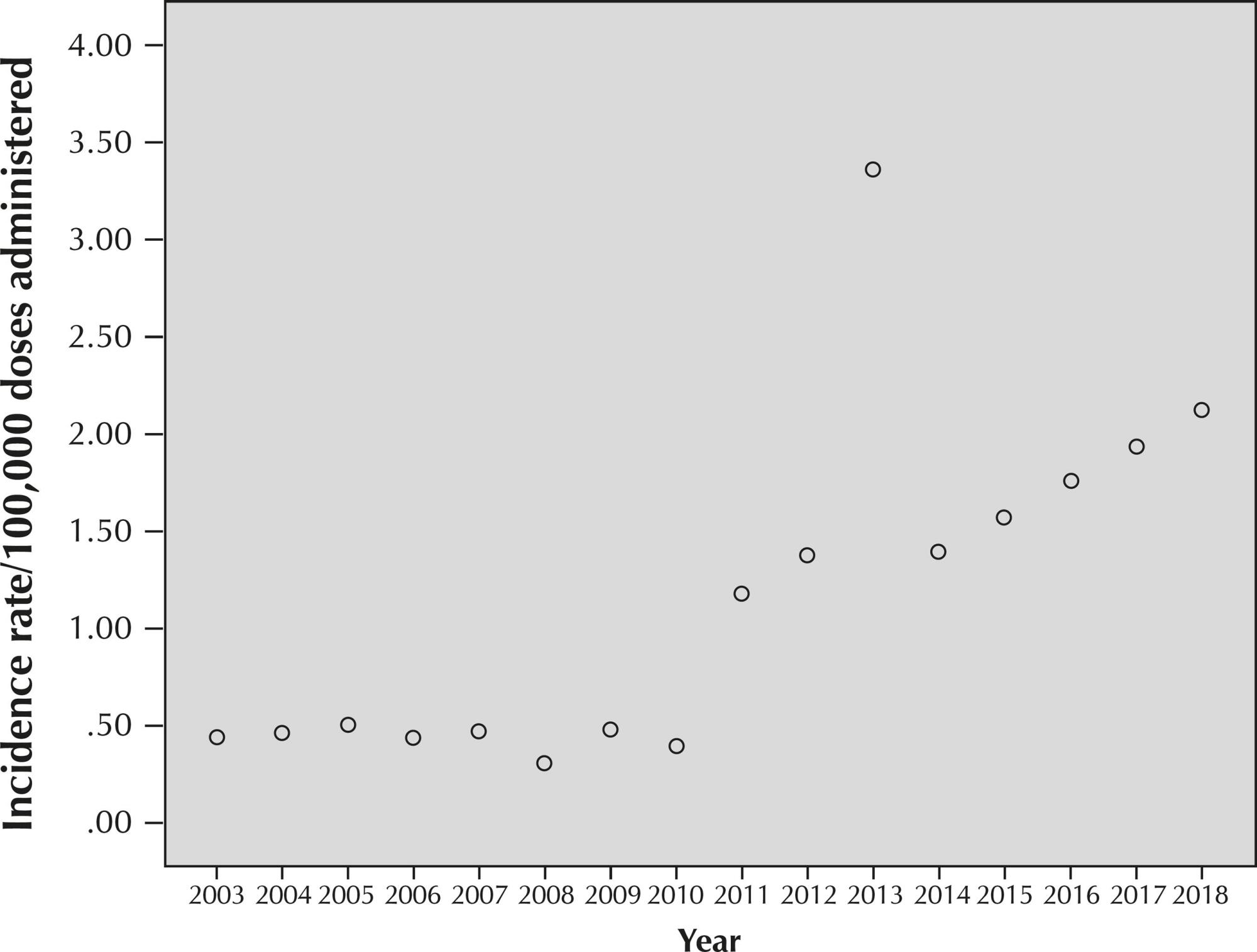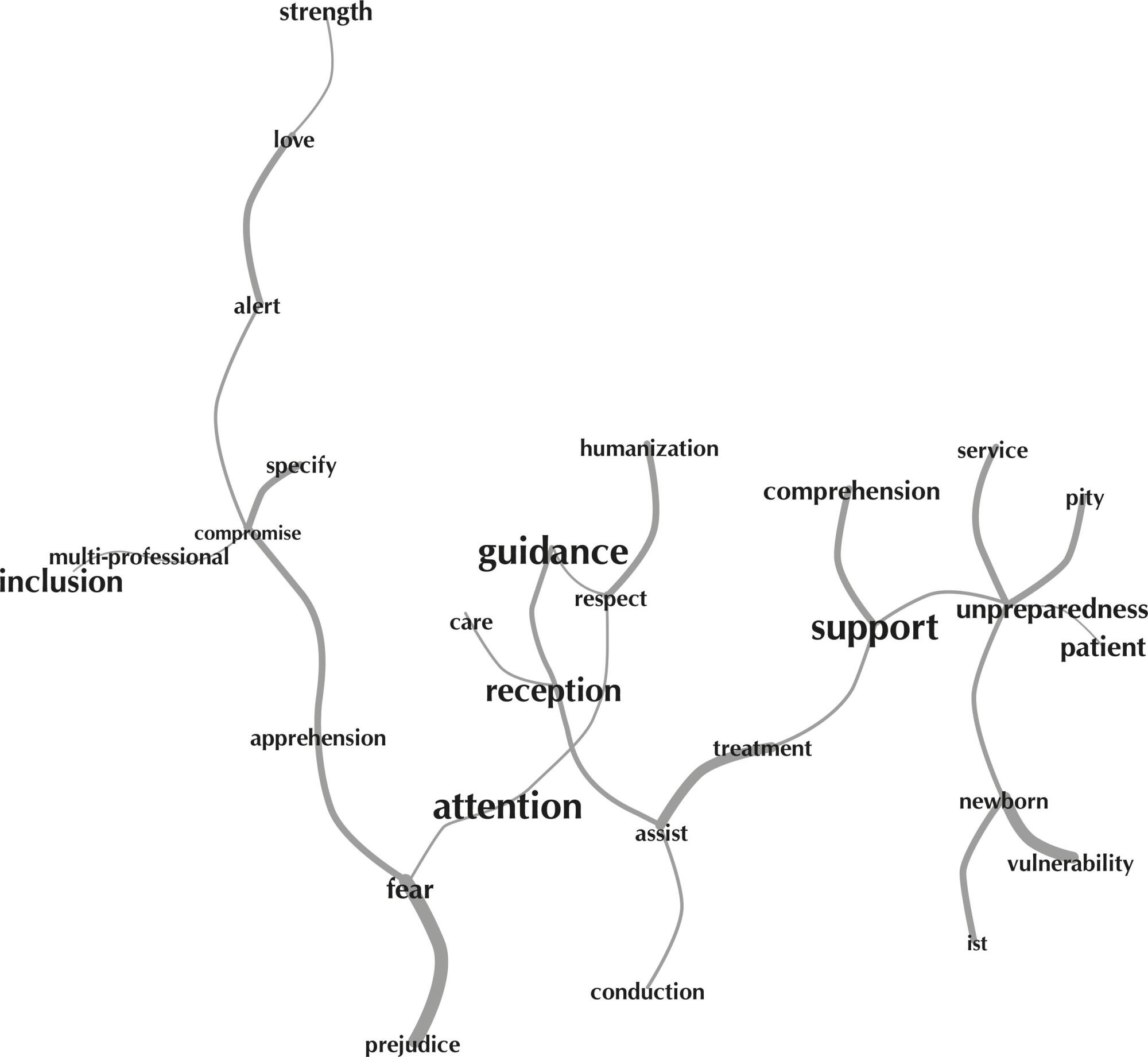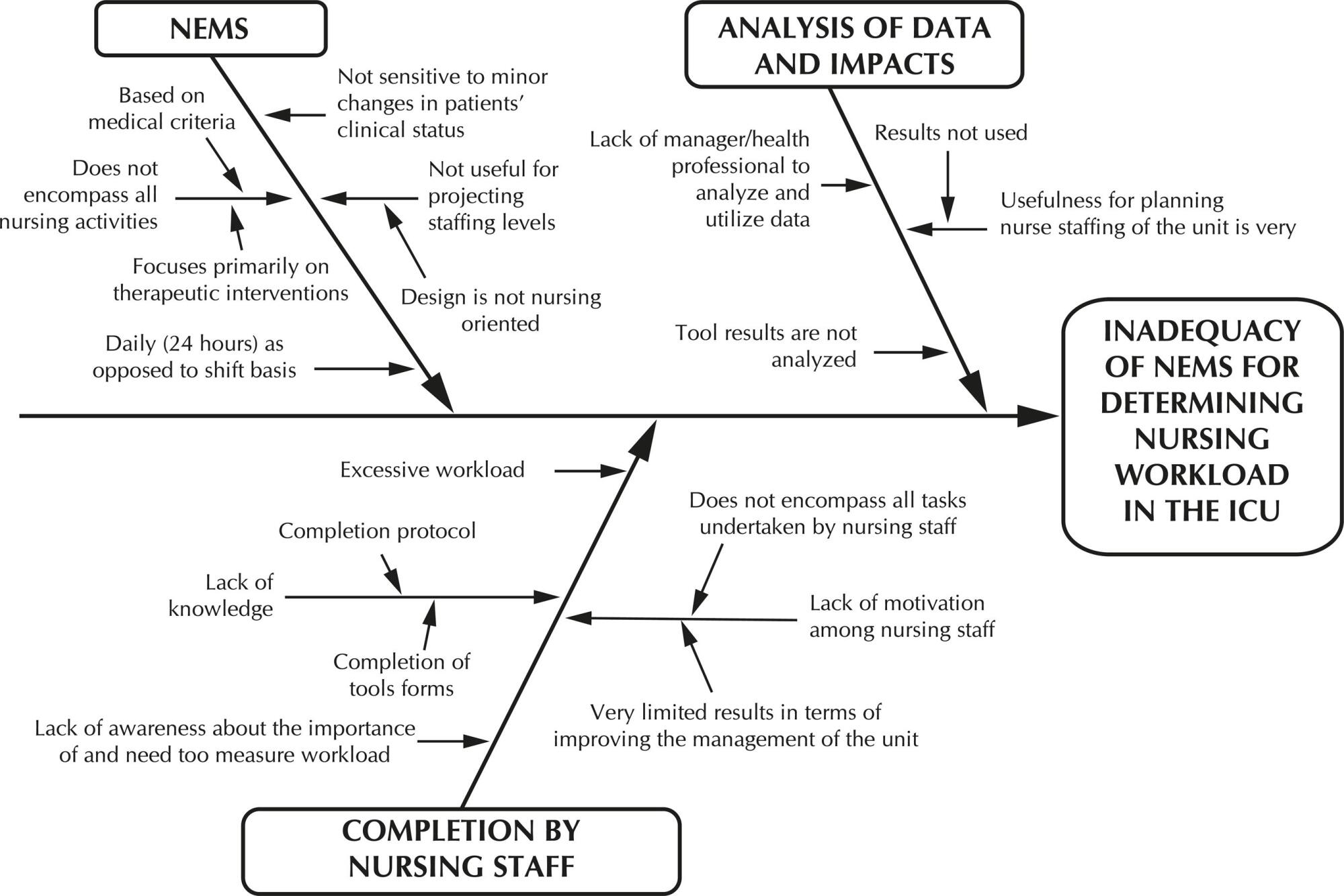-
01-01-2016
Discoveries of Biological Sciences and their implications for nursing practice
Revista Brasileira de Enfermagem. 2016;69(4):619-620
Abstract
Discoveries of Biological Sciences and their implications for nursing practice
Revista Brasileira de Enfermagem. 2016;69(4):619-620
DOI 10.1590/0034-7167.2016690401i
Views1For the longest time, the production of knowledge in the field of biological sciences was viewed as the exclusive responsibility and competence of medical professionals. This scenario has changed in light of the worldwide trend of improvements in other health professions, which includes the need to implement the use of evidence-based methodology in nursing practice. […]See more -
01-01-2016
Descobertas das Ciências Biológicas e as implicações para a prática da Enfermagem
Revista Brasileira de Enfermagem. 2016;69(4):619-620
Abstract
Descobertas das Ciências Biológicas e as implicações para a prática da Enfermagem
Revista Brasileira de Enfermagem. 2016;69(4):619-620
DOI 10.1590/0034-7167.2016690401i
Views1A produção de conhecimento na área das ciências biológicas, durante muito tempo, foi vista como de responsabilidade e competência exclusivamente de profissionais médicos. Esse cenário alterou-se frente à tendência mundial de aperfeiçoamento dos demais profissionais de saúde, incluindo-se a necessidade de se concretizar a utilização da metodologia da prática baseada em evidência na atuação do […]See more -
01-01-2016
The importance of civilian nursing organizations: integrative literature review
Revista Brasileira de Enfermagem. 2016;69(3):610-618
Abstract
The importance of civilian nursing organizations: integrative literature review
Revista Brasileira de Enfermagem. 2016;69(3):610-618
DOI 10.1590/0034-7167.2016690326i
Views0See moreABSTRACT
Objective:
to identify and analyze evidence from studies about the importance of civilian nursing organizations.
Method:
an integrative literature review, for which searches were conducted in the databases LILACS, PubMed/MEDLINE, SciELO, BDENF, and Scopus.
Results:
sixteen articles published between the years 2004-2013 were selected, 68.75% of which were sourced from Brazilian journals and 31.25% from American journals.
Conclusion:
civilian nursing organizations are important and necessary, because they have collaborated decisively in nursing struggles in favor of the working class and society in general, and these contributions influence different axes of professional performance.
-
01-01-2016
Effects from acupuncture in treating anxiety: integrative review
Revista Brasileira de Enfermagem. 2016;69(3):602-609
Abstract
Effects from acupuncture in treating anxiety: integrative review
Revista Brasileira de Enfermagem. 2016;69(3):602-609
DOI 10.1590/0034-7167.2016690325i
Views0See moreABSTRACT
Objective:
to evaluate the scientific evidence that is available in the literature on the effects of acupuncture for treating anxiety and on the quality of such studies.
Method:
the study is an integrative review of CINAHL, LILACS, PUBMED-PICO, SciELO, and The Cochrane Library between 2001 and 2014. Keywords anxiety, acupuncture therapy, acupuncture, and anxiety disorders were combined among themselves to ensure a wide search of primary studies.
Results:
among 514 articles, 67 were selected to be fully read and 19 were included. Among these, 11 were found to have strong evidence levels. Among the six articles about randomized clinical studies, five were found to be of reasonable quality. Two studies used acupuncturist nurses to perform their interventions. Its results showed positive and statistically significant effects from using acupuncture for treating subjects with anxiety.
Conclusion:
acupuncture seems to be a promising treatment for anxiety; however, there is a need for improving the methodological quality of the research on this field.
-
01-01-2016
Palliative care and spirituality: an integrative literature review
Revista Brasileira de Enfermagem. 2016;69(3):591-601
Abstract
Palliative care and spirituality: an integrative literature review
Revista Brasileira de Enfermagem. 2016;69(3):591-601
DOI 10.1590/0034-7167.2016690324i
Views0See moreABSTRACT
Objective:
to analyze scientifi c articles published in international online journals about palliative care and spirituality.
Methods:
an integrative literature review with data collected in September 2014 from the LILACS, SCIELO, MEDLINE/PubMed, and IBECS databases.
Results:
thirty-nine publications were identifi ed and their textual analysis facilitated through four thematic approaches: the meaning of spirituality in the context of palliative care; palliative care and spiritual support; spirituality and relief of pain and other symptoms in patients under palliative care; and instruments to evaluate the spiritual dimension of the scope of palliative care.
Conclusion:
this study examined the relevance of the spiritual dimension in the care of patients with palliative care and the need for developing new studies to disseminate knowledge about this topic.
Descriptors:
Palliative Care; Palliative Care at End of Live; Spirituality; Religion; Health.
-
01-01-2016
Educational technologies to encourage (self) care in postpartum women
Revista Brasileira de Enfermagem. 2016;69(3):582-590
Abstract
Educational technologies to encourage (self) care in postpartum women
Revista Brasileira de Enfermagem. 2016;69(3):582-590
DOI 10.1590/0034-7167.2016690323i
Views0See moreABSTRACT
Objective:
to evaluate national and international literature regarding the use of educational technologies to encourage self care in postpartum women.
Method:
an integrative review of the literature. The articles were collected from the CINAHL, SCOPUS, PubMed, SciELO, LILACS and Cochrane databases; the time period for the articles referred to January/2004 to July/2014; the languages used in the articles were Portuguese, English, Spanish and French; the articles were selected from the following descriptors: postpartum care period, educational technology, nursing and self care. Twenty-seven articles were selected for analysis
Results:
based on the information found, the scales, counseling and home visits were among the most recommended educational technologies.
Conclusion:
the technologies promote communication, but are sometimes dependent on computer and internet access, which hinder their use by low-income women.

-
01-01-2016
Patients with HIV/Aids and ulcer risk: nursing care demands
Revista Brasileira de Enfermagem. 2016;69(3):574-581
Abstract
Patients with HIV/Aids and ulcer risk: nursing care demands
Revista Brasileira de Enfermagem. 2016;69(3):574-581
DOI 10.1590/0034-7167.2016690322i
Views0See moreABSTRACT
Objective:
to analyze the demand for nursing care and the risk of pressure ulcers (PU) of patients with HIV/Aids.
Method:
quantitative survey, carried out from December 2012 to March 2013 in a public hospital of Teresina, state of Piauí, Brazil.
Results:
the sample of 31 patients was predominantly male, mean age 36.6 years, average care demand 49.4%, most showing some risk of developing PU. The variables correlated with PU risk were care demand and clinical outcome (death). Those associated with care demand were age and clinical outcome (death).
Conclusion:
the results showed that patients require moderate nursing care needs and most of them present risk of developing PU.

-
01-01-2016
Lack of anticipated support for care for community-dwelling older adults
Revista Brasileira de Enfermagem. 2016;69(3):566-573
Abstract
Lack of anticipated support for care for community-dwelling older adults
Revista Brasileira de Enfermagem. 2016;69(3):566-573
DOI 10.1590/0034-7167.2016690321
Views0See moreABSTRACT
Objective:
to identify the factors associated with lack of anticipated support for care for community-dwelling older adults.
Method:
this study presents comparison and logistic regression analyses of data from 671 individuals who took part of the multicentric study entitled “Frailty in older Brazilians” – a quantitative, epidemiologic and transversal investigation carried out between 2008 and 2009.
Results:
the subjective evaluation of anticipated support for care for community-dwelling older adults was a good indicator of risk for lack of anticipated support for care in women, older adults who live alone and those with poor self-rated health.
Conclusion:
it is necessary to reflect upon the formal support system currently available for older people in Brazil, considering that those who most frequently presented lack of anticipated support for care are an increasing population. The study also highlights the importance of using subjective methods for the evaluation of the adequacy of older adults’ support network.
-
01-01-2017
Adherence to standard precautions in a teaching hospital
Revista Brasileira de Enfermagem. 2017;70(1):96-103
Abstract
Adherence to standard precautions in a teaching hospital
Revista Brasileira de Enfermagem. 2017;70(1):96-103
DOI 10.1590/0034-7167-2016-0138
Views0See moreABSTRACT
Objective:
analyze related factors and the level of adherence to standard precautions of nursing professionals from the clinical medical division of a teaching hospital.
Method:
a quantitative, cross-sectional, analytical study was conducted with 54 nursing professionals using the Psychometric Scale of Adherence to Standard Precautions, translated and validated to Brazilian Portuguese.
Results:
the global score of adherence was intermediate (4.41); no statistically significant correlation was observed between adherence and professional category (p=0.404) and length of professional practice (p= 0.612). A correlation was observed between ‘Washes hands after removing disposable gloves’ (p=0.026) and professionals with nursing practice above 10 years.
Conclusion:
adherence to standard precautions by the nursing team was intermediate, with no statistically significant difference in relation to the professional category and length of professional practice.

-
01-01-2017
Analysis of adverse events following immunization caused by immunization errors
Revista Brasileira de Enfermagem. 2017;70(1):87-95
Abstract
Analysis of adverse events following immunization caused by immunization errors
Revista Brasileira de Enfermagem. 2017;70(1):87-95
DOI 10.1590/0034-7167-2016-0034
Views0See moreABSTRACT
Objective:
to analyze adverse events following immunization (AEFI) caused by immunization error in the state of Paraná, Brazil, from 2003 to 2013.
Method:
this is a descriptive, documental, retrospective, and quantitative research using secondary data from the Adverse Event Following Immunization Information System and the Immunization Program Evaluation System. We included cases confirmed and/or associated with different types of vaccines. For the analysis, we collected frequencies and incidence rates, and used simple linear regression models with Student’s t-test.
Results:
it was observed an AEFI increase due to immunization errors, especially hot subcutaneous abscesses. BCG vaccine had the highest incidence of adverse events and children under one year old were the most affected individuals.
Conclusion:
the current scenario is worrisome because these are preventable AEFI – injuring patients due to bad vaccination practices – that may undermine the population’s confidence, reducing immunization coverage, and the progress in the control of vaccine-preventable diseases.

-
01-01-2017
Nursing practice environment and work satisfaction in critical units
Revista Brasileira de Enfermagem. 2017;70(1):79-86
Abstract
Nursing practice environment and work satisfaction in critical units
Revista Brasileira de Enfermagem. 2017;70(1):79-86
DOI 10.1590/0034-7167-2016-0211
Views0See moreABSTRACT
Objective:
to analyze the association between the environment of nursing practices and work satisfaction in Intensive Care Units (ICU).
Method:
a cross-sectional study was performed in eight adult ICUs of a public university hospital between 2012 and 2015. The Nursing Work Index-Revised (NWI-R), in their short forms, and the Index of Work Satisfaction (IWS) were applied to investigate the environment of nursing practices and work satisfaction, respectively.
Results:
a total of 100 (34.84%) nurses and 187 (65.15%) nursing assistants/technicians participated in this study. The environment was favorable for autonomy and relationships and it showed vulnerability for control of practices and organizational support. The IWS score indicated low work satisfaction. “Environment of practices”, “length of work in the ICU” and “willingness to work” were associated with work satisfaction.
Conclusion:
to invest in the environment of practices, in factors that promote willingness to work and length of experience in the ICU increases nursing work satisfaction.
-
01-01-2017
Care for women involved with drugs: social representations of nurses
Revista Brasileira de Enfermagem. 2017;70(1):71-78
Abstract
Care for women involved with drugs: social representations of nurses
Revista Brasileira de Enfermagem. 2017;70(1):71-78
DOI 10.1590/0034-7167-2016-0339
Views0See moreABSTRACT
Objective:
analyze social representations of nurses related to the care for women involved with drugs.
Method:
qualitative research founded on the theory of social representations, with 42 nurses from a public maternity ward of Salvador-BA, using identification questionnaire, test of free association of words, and semi-structured interview. We analyzed the structure of social representations and the similarity tree of free evocations, and also analyzed the content of interviews.
Results:
care for women involved with drugs is represented by a set of words that shows theoretical questions and scientific techniques, but faced with experiences in the training, in the daily work and in ideas and values assigned to the consumption of drugs especially in the gravidic-puerperal period.
Conclusion:
The social representations of nurses show conflicts between social and cultural aspects around the problem of drugs and the health care provided to women involved with drugs.

-
01-01-2017
Support to woman/nourisher in the advertising pieces of the World Breastfeeding Week
Revista Brasileira de Enfermagem. 2017;70(1):61-70
Abstract
Support to woman/nourisher in the advertising pieces of the World Breastfeeding Week
Revista Brasileira de Enfermagem. 2017;70(1):61-70
DOI 10.1590/0034-7167-2016-0376
Views0See moreABSTRACT
Objective:
to unveil the support to woman/nourisher in the advertisements of the World Breastfeeding Week.
Method:
This is a descriptive, exploratory, documentary, qualitative study. Since the collection until the analyses of these advertisements, we adopted the methodological steps of Gemma Penn, based on the semiology of Roland Barthes. The results were interpreted by the theory of Social Network of Sanícola and of the five types of support: companionship, emotional, instrumental, informational, and self-supportive.
Results:
we identified actors of the social network of the woman/nourisher in nine advertisements of the 22 world breastfeeding weeks. In five of them, partner, grandmother, and brother showed emotional and companionship support to breastfeeding. We observed self-support in three posters; instrumental support in one; and informational support in none.
Conclusion:
the support unraveled in only five advertisements included: emotional, companionship, instrumental, and self-supportive. In the others, there was no support. The set of supports was not revealed in any of them.
-
01-01-2017
Emergency interventions for air medical services trauma victims
Revista Brasileira de Enfermagem. 2017;70(1):54-60
Abstract
Emergency interventions for air medical services trauma victims
Revista Brasileira de Enfermagem. 2017;70(1):54-60
DOI 10.1590/0034-7167-2016-0311
Views0See moreABSTRACT
Objective:
to analyze emergency interventions for air medical services trauma victims, considering the time at the scene of trauma and the severity of the victims.
Method:
This was a descriptive, correlational and quantitative study, conducted from October of 2014 to December of 2015. Six nurses participated, completing an instrument containing emergency interventions performed in the care of victims after the occurrence of trauma. The sample consisted of 97 treatments.
Results:
Among the 97 for whom care was provided, peripheral venipuncture was performed in 97.94% of the cases; immobilization, including a backboard, was used in 89.70% of cases. The most commonly used medications were dipyrone in 44.33%, and ondansetron in 76.29%. The time on the scene showed significance with the severity of the victims. The Glasgow Coma scores were inversely related to time on the scene.
Conclusion:
Further studies are necessary, focused on care protocols for trauma victims
-
01-01-2017
Evaluation of the hospital accreditation program: face and content validation
Revista Brasileira de Enfermagem. 2017;70(1):47-53
Abstract
Evaluation of the hospital accreditation program: face and content validation
Revista Brasileira de Enfermagem. 2017;70(1):47-53
DOI 10.1590/0034-7167-2016-0184
Views0See moreABSTRACT
Objective:
to describe the results of face and content validation of the questionnaire entitled Quality Improvement Implementation Survey, and of two complementary scales as part of the adaptation process to the Brazilian language and culture.
Method:
included the following stages: (1) translation and synthesis of translations; (2) consideration by the expert committee; (3) back translation; (4) evaluation of verbal understanding by the target population.
Results:
the questionnaire was translated into Portuguese and its final version included 90 items. In the pre-test, the target population evaluated all items as easy to understand, with the global average of 4.58 (maximum value = 5).
Conclusion:
the questionnaire is currently translated into Portuguese and adapted to the Brazilian context. The adapted version maintained the semantic, idiomatic, conceptual and cultural equivalence, according to the assessment of the expert committee and the information provided by the target population, which confirmed the face and content validity.
-
01-01-2017
Adecuación de escalas para medir cargas de trabajo mediante metodología de calidad
Revista Brasileira de Enfermagem. 2017;70(1):39-46
Abstract
Adecuación de escalas para medir cargas de trabajo mediante metodología de calidad
Revista Brasileira de Enfermagem. 2017;70(1):39-46
DOI 10.1590/0034-7167-2016-0246
Views0RESUMEN
Objetivo:
Determinar cuál de las escalas evaluadas (NEMS y NAS), es más adecuada para Unidades de Cuidados Intensivos aplicando metodología de calidad.
Método:
Tras identificar como oportunidad de mejora la no adecuación de la escala NEMS para determinar cargas de trabajo de enfermería en UCI, se aplica metodología de los ciclos de mejora a dicha escala y a la NAS, como propuesta de mejora, evaluando los criterios: medición de cargas de trabajo al día y por turno, inclusión de todas las actividades enfermeras, y análisis por paciente y unidad.
Resultados:
Escala NEMS no muestra diferencias significativas en el cumplimiento (67%). Comparación NEMS-NAS, todos los criterios excepto el 1º, obtienen mejora significativa. NEMS sólo valora el criterio 1 (64,22%), y NAS todos con un cumplimiento para el 1º, 2º y 4º del 64,74%, y el 3º del 100%.
Conclusión:
La escala NAS es más adecuada para medir cargas de trabajo de enfermería en UCI.
Keywords:Carga de TrabajoControl de CalidadEnfermeríaGestión de la CalidadUnidades de Cuidados IntensivosSee more
-
01-01-2015
Quality of life and physical activity in intensive care professionals from middle São Francisco
Revista Brasileira de Enfermagem. 2015;68(1):26-31
Abstract
Quality of life and physical activity in intensive care professionals from middle São Francisco
Revista Brasileira de Enfermagem. 2015;68(1):26-31
DOI 10.1590/0034-7167.2015680104i
Views0See moreObjective:
the objective was to assess the level of physical activity (LPA) and the quality of life QL of the professionals who work in ICU.
Method:
this was a cross-sectional study carried out in Adult ICUs. LPA was assessed by the International Questionnarie of Physical Activity – short form (IQPA-SF) and the QL by the Medical Outcomes Study 36 (SF-36) questionnaire.
Results:
it was classified active 50.89% out of a total of 59 professionals. Nursing technicians were considered the most active with 60.6%. The QL of the professionals who were considered active were better when compared to inactives, with statistical differences to the category of physical aspects limitation, social aspects and mental health. The working hours were higher than recommend, the physicians were higher than the physical therapist, nurses and technicians nurses (p = 0.046).
Conclusion:
physically active professionals who work in ICU had higher quality of life probably why have lower hours of work and consequently more free time to engage in physical activity.

-
01-01-2015
Learning needs of Nursing students in technical vocational education
Revista Brasileira de Enfermagem. 2015;68(1):20-25
Abstract
Learning needs of Nursing students in technical vocational education
Revista Brasileira de Enfermagem. 2015;68(1):20-25
DOI 10.1590/0034-7167.2015680103i
Views0See moreObjective:
identify learning needs of students of Technical Vocational Education (TVE) in Nursing. Qualitative study conducted in a city of São Paulo state.
Method:
the subjects were students, teachers and coordinators of TVE and students of the bachelor degree who have had contact with TVE. Data collection was performed by questionnaire socioeconomic and cultural circles about the learning needs. For data analysis we used the content analysis.
Results:
it was found that students have difficulties contents not related to nursing as portuguese and mathematics, as well as introductory courses in the course of TVE which possibly may interfere negatively in learning specific content of nursing and the quality of health care.
Conclusion:
it is necessary to rethink the content taught and ways to teach from basic education, as well as the training of teachers who now works in the TVE.
-
01-01-2015
Serious game e-Baby: nursing students’ perception on learning about preterm newborn clinical assessment
Revista Brasileira de Enfermagem. 2015;68(1):13-19
Abstract
Serious game e-Baby: nursing students’ perception on learning about preterm newborn clinical assessment
Revista Brasileira de Enfermagem. 2015;68(1):13-19
DOI 10.1590/0034-7167.2015680102i
Views0See moreObjective:
to evaluate students opinion regarding e-Baby educational technology.
Methodology:
exploratory descriptive study in which participated a sample composed of 14 nursing Portuguese students that used e-Baby digital educational technology in an extracurricular course. To achieve the aim of the study, the data collection was realized through an opinion instrument in Likert scale including the possibility of commentaries by students. Is was also collected data of participants’ characterization.
Results:
students made very satisfactory evaluations regarding the game e-Baby, varying since usability acceptation through suggestions of expansion of the game to other nursing themes.
Conclusion:
serious game e-Baby can be considered a didactic innovation and motivator tool of learning. Besides, it demonstrates have adequate interface in design and educative function aspects, evocating intense interaction between user and computational tool.

-
01-01-2015
Challenges beyond the scientific knowledge production
Revista Brasileira de Enfermagem. 2015;68(1):7-8
Abstract
Challenges beyond the scientific knowledge production
Revista Brasileira de Enfermagem. 2015;68(1):7-8
DOI 10.1590/0034-7167.2015680101p
Views0For several decades, innumerous appeals and reflections on how to build the nursing science and achieve visibility in the scientific world led researchers to make efforts to produce knowledge that contributed to the well-being of people, improving their quality of life, relieving their suffering and transforming the reality in which we live. In addition to […]See more
Search
Search in:
Nuvem de Tags
Adolescente (85) Atenção Primária à Saúde (239) COVID-19 (91) Criança (91) Cuidados de Enfermagem (269) Educação em Enfermagem (151) Educação em Saúde (139) Enfermagem (930) Enfermagem Pediátrica (86) Estudantes de Enfermagem (77) Estudos de Validação (131) Família (87) Idoso (208) Promoção da Saúde (99) Qualidade de Vida (104) Saúde do Trabalhador (86) Saúde Mental (145) Saúde Pública (82) Segurança do Paciente (150) Tecnologia Educacional (100)



